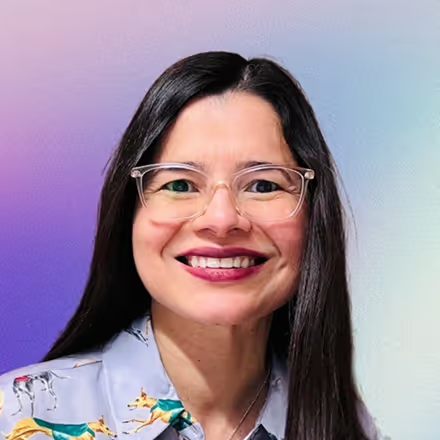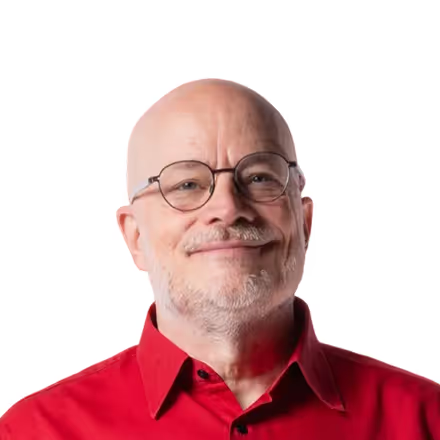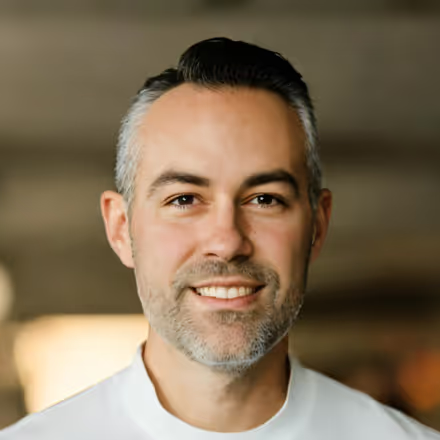Webflow was a proud sponsor of SXSW Online 2021, a conference that celebrates the unexpected discoveries that happen when diverse topics and people come together.
Joined by a large global audience, this year’s virtual event packed just as much valuable content as the in-person experience in Austin provides.
Webflow’s CEO and co-founder, Vlad Magdalin, was joined by Webflow board members Arun Mathew, Partner at Accel, and Laela Sturdy, General Partner at CapitalG, for a discussion on The business case for no-code. Check out the session recording, or read the transcript below.
Micah Johnson from Webflow University also hosted a game of trivia called The k(no)w code show presented by Webflow. He was joined by Pablo Stanley, Cofounder of Blush, Lacey Kesler, Head of Education at Adalo, Brianne Kimmel, Founder of Worklife Ventures, and Cassidy Williams, Principal Developer Experience Engineer at Netlify. If you missed it, enjoy the recording and find out how much you k(no)w code:
The business case for no-code
Vlad Magdalin, CEO and co-founder at Webflow
Arun Mathew, Partner at Accel
Laela Sturdy, General Partner at CapitalG
Vlad: Hey everyone, thank you for joining this session about the business case for no-code. My name is Vlad Magdalin, I’m the Cofounder of Wefblow, one of the companies that's joining and leading this movement. With me, I have two of my favorite people: Laela Sturdy and Arun Mathew, who both have been so involved in the space for a long time.
Hey guys, how's it going? Good to have you here. I’ll let you introduce yourselves in a second — But first, for folks who aren't familiar with no-code and what it even means, it's the idea that we're enabling the rest of the world — not just programmers — to create things that you can create with code. Software, websites, applications, things that we use in real everyday life on our phones, on our screens, in our browsers, etc.
And today only a small, tiny fraction of the world is able to create that kind of software, like 0.25% of all people, one out of every 400 people. And no-code is a collection of tools and services and products that aims to really democratize that to everyone in the world and make it possible to do that without code — it's kind of in the name. And now to introduce Laela and Arun a little bit more, I wanted to ask each of you to share just a little bit about yourselves, and maybe start with a question about when you had your first aha moment about the no-code movement and why you're personally excited about this whole space and where it's headed. We'll start with you Laela.
Laela: Great thanks so much Vlad, great to be here. So my name is Laela Sturdy and I'm a General Partner at CapitalG, which is a growth equity fund backed by Google and Alphabet and we invest in transformative technology companies.
I first had my aha moment about no-code in a few different places. First, it was talking to my uncle who has a small business and was trying to figure out how to sell his product online and talking to a friend who was a lawyer and was just talking about spending years going through law school doing the same repetitive tasks. And I thought you know there's got to be a better way for really accomplished people who have specific expertise, but need to digitize parts of their business more — could we automate some of the repetitive tasks of the lawyer, could we figure out how to get a small business owner to sell his products online. And at the same time, I was having those conversations with small business owners. I was talking to CIOs and C-suite executives and really large companies who were talking about the threats that their businesses were under — from new disruptive businesses that were born digital first, and they were trying to respond and make their businesses more digital, and more ready for doing business in today's world. But yet, they had development pipelines that were miles long without the number of engineers they needed to get through those pipelines, they had cyber security concerns, and they just didn't see an end to being able to actually build this type of software.
And that was — from very disparate sources — my aha moment for no-code which is: There's got to be a better way. There's got to be a way for C suite leaders to — in large enterprises — configure software, instead of rebuilding the wheel every time, and building custom code themselves. And there has to be better ways for small business owners or creators or designers to be able to take some of the magic of code and bring their services and businesses online. So in that I started to really see the full potential for no-code, which I think can touch every industry in every facet of life.
Vlad: I love it, from farmers to founders to C-level executives. I love that story. Arun, you've been investing in the space and participating in the no-code movement for a while. I’d love to hear from you what your aha moment was.
Arun: Well, first of all great to be here, thanks for having me. My name is Arun Mathew. I'm a Partner at Accel, we're a global venture capital firm with offices in India and in London, which covers broader Europe and Israel and the US.
No-code is one of those themes and theses that we have globally and we've backed companies like Webflow all around the world and it's a core investment thesis for us primarily because we think that no-code has the ability to impact almost everyone in the world. For me, like Laela, my aha moment started with a very personal story. My sister is in the medical field like a lot of my family and she was trying to put up a website for her small business and lacks technical skills, but realized that she needs to be online to attract and acquire customers and people to come to a small practice. She used a no-code tool and it was sort of an aha moment for her and an aha moment for our whole family. And my dad and my brother in law, who are also in medicine, ended up building on that tool and it was this whole moment for my family where they were able to participate in the digital economy in a way that they weren't able to before and for me, that was a really gratifying moment, sitting here investing behind technology companies but seeing the impact of those technology companies in your personal life is amazing.
But zooming out, I think the impact of the digital world in our lives has only accelerated over the last year in COVID. And allowing people to participate, to not only consume, but to create in that world I think is necessary if we look forward to the next 5, 10, 15 years. And so my excitement around no-code is more that it allows everyone to participate in this new economy in a way that was never possible before. And it's partially — I know we're going to get into this in this discussion — but it’s what gives me so much excitement about what's going to happen over the next decade.
Vlad: That's awesome. Just to share my own aha moment, I kind of had an aha moment about code itself and then about the power of no-code in how it could help more people.
I actually started as a graphic designer. I knew CorelDRAW and Photoshop, and that was sort of my jam. And my dream was to work at Pixar and make these 3D animated movies and apply my creative skills that way, so I went to art school close to here in San Francisco and learned all the classical things around how you become a 3D animator. But for that you need to learn color theory and painting and art and sculpture and then you get into some of these computer aided classes. It was sort of the state of the world when I learned 3D animation that had these powerful software packages, where it wasn't an artist creating something on paper and giving it to a programmer and having that programmer convert it into 3D. It was artists directly using these software packages, like Maya and 3D Studio Max and Blender to tell these stories.
Some parts of it required some code to do physics effects and particle effects and things like that, so I picked up a book on code. And I just realized the power that you have when you kind of marry the idea of visual workflow plus the coding aspect to do really, really powerful things. And I felt like I had superpowers and I started to create websites on the side and started learning HTML and CSS and all these other code principles. I started to make money on the side to make ends meet, while I was going to college, and then I got this internship working at a creative design agency that was making websites and applications for large companies like Apple and HP and Tennis Channel, etc. And all of a sudden it's like two completely different worlds presented themselves — like here are creatives working on super powerful software and shipping Toy Story 2 and these amazing stories and amazing movies to the screen. And at this creative agency they're all these creative minds, creating really, really amazing website designs in Photoshop and then handing them over to me as a programmer to translate to HTML and CSS and Javascript and things like that. And it felt like night and day where this creative process goes to production and becomes reality.
And in this other world is something that is equally creative but has this huge constraint of having to be translated to code and it's almost — to me, that was the big aha — why doesn't something like 3D animation software exist for general software creation, for more sophisticated professional website creation? And it was just the clearest aha moment of all time — like this needs to exist, the world can be a better place, there could be a better way. But it started that initial idea around something like Webflow needs to exist, we need visual software to enable other people to create software. And I'm so glad to see this entire no-code movement start to pop up with so many other companies realizing that it's so powerful to enable people to create software and so much software has changed the way that we live.
All the apps that use all the things that are in your browser, that's all software that's all created by people who write code. And if we can enable 10 times, 100 times as many people to be able to create that kind of stuff without the need to go get a computer science degree or something like that, that's what really got me excited and inspired me to start the company and has really kept me going in the empowerment that it brings.
Actually one of the first questions I had for both of you is, just in what you've seen in the early stages, when somebody's thinking about getting an idea out there, or starting a startup, there's usually a shortage of everything — shortage of time, shortage of resources, money, you don't have usually the developers to go build everything that you want to build. How do you see these no-code technologies and no-code tools helping early teams and entrepreneurs and people with an idea and with a dream get off the ground? Maybe we'll start with Arun.
Arun: Yeah this is one of the reasons why I'm most excited about no-code as an investor, you know 20 years ago when we would lead a series A into a company, almost all that money would go into building infrastructure and things that were not core to the actual product or service that a team was trying to build. And so you would have to raise another round of capital, after that, and everyone would rebuild the same stack. Fast forward 10 years later, and people started using Amazon Web Services or GCP or some other cloud infrastructure services, and over the last decade we've seen an API-ification of all these different services that are not core and so Stripe with payments, Twilio with messaging and communications infrastructure.
We're seeing all of this, which is amazing, because now, you can basically outsource enterprise-grade services via API for anything that's non-core. And in my mind that's been a huge accelerant for a ton of the innovation that we've seen over the last decade. And no-code actually accelerates that even more and so there's a way for you to just focus on your specific problem in a way that you could never do before partially because you're not rebuilding everything from day one.
So one of the hardest things to do when you're a startup is finding what we call product market fit. And if you can shorten the time from developing a product and iterating and finding that product market fit, you have a much higher chance of success, and so the ability of no-code basically to abstract the coding, the development away, to build a product to surface it to offer it to an end user to find that product market fit with minimal capital allows you to iterate, a whole lot faster. And finally, when you raise capital, you can actually put it towards scaling and acquiring users and doing something that's more directly relevant to what you're building. And so, in my mind, it not only brings more people into the fold about developing digital products, but it also enables entrepreneurs to focus on their specific problem, their specific surface and iterate a lot faster. And that I think is the key and the unlock for me of why we're so excited and I think why almost every company in our portfolio is leveraging some type of no-code tool.
Vlad: Yeah that's awesome. Laela, what are your thoughts on this topic?
Laela: I completely agree with everything Arun said. I mean, there couldn't be a more exciting time than now to build a company because of all of the resources that are available to entrepreneurs, so as Arun said I think we've seen these trends of technology begin to layer on top of each other and enable faster time to value and more people participating in the ecosystem. So the cloud allowed us to abstract away the complexity of building your own data centers. APIs like Arun talked about allowed you to abstract away the complexity of those different modular pieces like payments and no-code now is taking that even further.
The things that you can do inside of no-code, the functionality that you can now simply through visual interfaces drag and drop, as opposed to coding yourself, just means that money multiplies, more people can get into the ecosystem and begin innovating and begin creating. Those barriers to entry are much, much lower and when that happens, it means we see more innovation and we see more ideas come in.
Vlad: Yeah I love that. Arun you mentioned Amazon Web Services, it just reminds me of my own story when I started building websites for clients while going through art school, I had to physically go buy a server. This Dell server that you had to configure and buy a separate hard drive and drive it over to this co-location center in San Francisco and pay them to keep it running and sometimes it would go off and I'd have to drive up there and figure out what's wrong and reconfigure, reinstall the operating system. And then Amazon Web Services came out and — poof, all that was gone. You essentially, with a credit card say, I need a machine and that layer of complexity is hidden away.
Same thing, I remember the first website that I built that had an ecommerce component, it was some snowboarding customization thing, where you can buy things like a custom snowboard. And I needed a check out for that — this is before Stripe existed — and I had to go sign up for this authorize net thing and set up a bank account and do this background check and learn a bunch of APIs and these things that had to have one set of code for Visa and another set of code for Discover, one set of code for MasterCard and then something like Stripe came along, and a lot of that complexity just goes away. You just pull in an API and so much of this is done for you and it's behind the scenes and it's almost like the idea of standing on the shoulders of giants because we're taking more and more complexity, we're identifying these common patterns that, like Arun mentioned, the common problems that people saw over and over and over and every startup and every idea and every piece of software that people want to build, and just saying, this is behind this wall or API or UI that you can declare and configure.
And just get to building like you said Laela, the most important thing about the product or service that you're trying to get out there, and today that takes it up another notch. Visual developers, people who don't know how to even interface with API's, can go into Webflow and build an ecommerce experience that has Stripe automatically built in and abstracted, where you're dragging and dropping, you are visually configuring, and it's the same stuff that I was doing manually 20 years ago. Except done in 1/10th if not 1/100th of the time and just helps startups and entrepreneurs really focus on the core problem that they're trying to deliver to the world, and that to me is the biggest unlock. So that is really exciting for small companies, but I want to shift gears a little bit and get your take, Laela, on what you think the impact is for larger organizations, like you mentioned CIOs and larger companies, what do you think they stand to gain from embracing no-code tools and platforms?
Laela: Yeah, I think there's a huge opportunity with large enterprises. Each year large enterprises spend about $500 billion building custom code, so if you can imagine that it becomes legacy code almost immediately upon meeting the world. The same CIOs that I mentioned earlier, when I talked to them they're already contributing to that $500 billion and the demands of what they have to build are so deep and so broad, so they have many of these companies that are [for example] life insurance companies that have been existing for hundreds of years, still don't have digital onboarding to bring their customers on. Traditional retailers still don't have the latest ecommerce functionality. There's all sorts of industries that their back office is still entirely manually run and operated, and these are super large enterprises. So they need solutions, and they need it really, really quickly.
So what I've noticed about buyers in large enterprises and leaders is they don't think about buying a no-code solution, they think about solving a problem and getting a solution to their challenge. So where no-code comes in, it's just being able to offer cheaper, better and faster solutions, so if you can build that digital onboarding for a life insurance company inside of a no-code platform and can configure that same onboarding pull in modules that have already been pre-configured pull in APIs that have already been connected to the systems, you need to connect to. And you can get time to value and get that product shipped in 10 weeks, whereas it might have taken a custom coder five times as long to build that. You're going to win that business and see CIOs are going to start adopting platform solutions where they can get time to value much faster, because the pressure for digitization and the pressure that consumers are putting on side businesses to interact in digital experiences in all facets, are going to mean that these leaders need solutions, and I think increasingly we see them turning to no-code platforms as the better, faster, cheaper way to do it.
Vlad: Awesome, by the way, I am a little embarrassed to admit I had to look up what CIO stands for — chief information officer — and I run a company. These are the folks who are worried about how data is stored internally, how we're solving problems internally and externally, how we get things to be stable over time. You mentioned legacy code Laela, where you might create a solution, but then you have the problem of browsers upgrading or new operating systems upgrades. You need engineers to jump in and fix that stuff whereas no-code platforms have developers inside of their companies worried about all of that compatibility, but Arun I would love to hear your take on what you're seeing from larger companies, how they're adopting no-code or what it might mean for them, etc.
Arun: If you look at the last five years, every conversation I've had with a CIO or large organization, they talk about some digital transformation project that they're working on. They're always working on something related to automation or moving faster, creating a digital experience, as Laela was talking about, everyone is working on that. I think all of that changed and accelerated over the last year, what became a nice to have project — something that would be nice if we get to it at some point — became absolutely necessary over the last year.
And so I think what every organization, large and small, but particularly the large ones are dealing with right now is how to enable and equip their entire workforce to work productively in this new era, if you believe that digital is the future, part of that is automation by making sure that you can mechanize a lot of the tasks that people do that's not necessary, that machines or computers could do. Part of that is collaboration and productivity and making sure that people are using tools that allow them to work where they want to work, how they want to work. And part of that is enabling people to actually create for the web. And not making the entire progress and sustainability of an organization dependent on a very, very small group of developers that are already overloaded.
So, when you think about the impact on large enterprises, I actually think it's tremendous just because a very, very small change across a lot of people in these organizations makes such a huge difference.
Vlad: Yeah, I love that. For me personally, when we started Webflow particularly, we weren't really thinking about how enterprises or large teams are going to create websites and applications quicker, it was really about empowering individuals and entrepreneurs and these creators to be able to build software and to build really, really professional complex websites.
What we saw was that, as those people started creating more and more those people join larger companies or the companies that they started with no-code tools earlier and validated an idea, blossomed into first a 100 person company, then a 500 person company that has escalating needs and you go from just having a website to market your product and an app that actually delivers the value of your product to multiple applications like Laela mentioned, a lot of internal things to solve internal automation problems, a lot of customer automation that you might not have the people or engineers required to to build out a really custom code based workflow etc.
We saw more and more people are graduating and building really, really rich things on top of Webflow, to the point where now, we have an entire Webflow enterprise arm where huge companies are consolidating like you mentioned Arun, this digital transformation, where they might have done something with code, where they had a really slow process where designers had to create something, then hand it over to engineering and weeks later, they would hand it over to quality assurance, weeks later they would hand it over to IT to go deploy it and each of these disciplines need to have a lot of resources set up, servers to process, etc., to now these companies are just operating at speed and saying it's just a small team that's responsible for both designing and developing visually in these no-tools like Webflow pushing the publish button and it goes live, and you have from landing pages to prototypes to entire applications that solve a specific customer pain point or internal pain point.
And people are building it across tiny companies, one person companies, in huge 100,000 person companies, so it really shows that the movement is actually just ubiquitous in how it's taking the power of computing and the power of describing to a computer a set of steps or set of rules that you want it to take and just automating that for you in a way that is a lot more intuitive than learning all these APIs, learning the core code foundations, etc. So that is the true definition of the movement to me, that it's not just helping individual creators, it's not just helping huge companies with large pocketbooks and the ability to hire their own developers, it's helping everyone.
It's just like general computing and personal computing – when Microsoft said their mission was to have everyone have a computer on their desk because it just gives people superpowers, it helps you be more productive and helps you do more with your life, etc. Similarly, the no-code movement is trying to get the power of software creation into everyone's hands, whether it's an individual or these larger enterprises that can move much, much faster than they can traditionally. And speaking of all this code in translating to code — it's sort of oddly baked into the name and it's a little controversial — but a lot of people translate no-code, when you say no-code movement or no-code technology or no-code tools, they take it to mean that there's either no code involved, or it's anti-code, or that the entire movement is harmful to developers and engineers and programmers.
I absolutely don't believe that to be the case and I'll explain why in a little bit, but I first wanted to get your take on that. Laela, what have you heard, or what have you seen, or what are your thoughts on what no-code means for developers and for traditional programmers who are writing code and that's their main source of making a living, etc.
Laela: Absolutely, so this is a classic example of the pie just getting bigger, what no-code does is the pie gets bigger. I mean if you talk to anybody leading any sort of company, the number one challenge they have is a skill shortage in hiring developers. Again go back to what we were talking about before, the opportunity and the need for technical skills and to build digital experiences is at an all time high. And the number of engineers and the number of people that can code just can't meet that demand. So there will be plenty of demand, there is plenty of demand now; there will be plenty of demand for developers in the future.
No-code just makes the pie bigger by bringing more creators into the ecosystem, who can also develop software alongside developers. The other really magical thing that I've seen inside a lot of no-code platforms like Webflow and others, is that they really become collaboration tools for developers and non-developers to think through the business challenges, to think through the technical challenges and to co-architect solutions in a common platform, so it has the impact — just like any great trend that makes a pie bigger — the impact is not taking away work from one group to another, it's enabling more work to be done, together with people with diverse skill sets to go after these enormous opportunities.



















Free ebook: The no-code revolution
Discover the impact the no-code movement will have for the future of makers and businesses.
Vlad: Yeah I totally agree. Arun, anything you want to add to that?
Arun: I think it was a really great summary. We run a survey every year and the two roles that are always in constant shortage are one, security engineers, and two, developers. And when you ask developers, I think some are probably wondering what the impact on their lives going forward about this whole movement is.
But when you actually talk to people in organizations that have implemented a lot of no-code tools they actually express a lot of relief. Because so much of their time is just bogged down with the requests that they don't want to do, and so a combination of automation plus no-code tools will enable your talented developers that you spend so much time to recruit that have so many demands to focus on the most important problems. And that should be the goal for all of us, we want to spend time on the interesting things, the things that actually move the needle.
And I think that no-code allows you to do that in a really, really powerful way and so as Laela said, it really is a win, win. It enables people to create and express themselves directly, without this translation layer of going to a developer and producing something in an iterative concept. And for the developers themselves, it focuses on the important tasks at hand, the really challenging problems that require a lot of bandwidth and now they hopefully will have a little bit more of it with the implementation of these tools.
Vlad: Yeah I hear you. When we were first starting Webflow, it was the thing I was worried about most often because our entire landing page says you can build without code now. If you're a designer, you don't have to rely on a developer, and I really was sweating this idea of — are we putting people out of a job, etc? But what I learned over time over the last seven or eight years, as we actually saw what was happening in the market, is that by enabling 10 times, 100 times as many people to start to create these things, to start to create a website to start to create an app, it only creates 10 times, 200 times more demand for software engineers, because each of these things that start with no-code tools and grow with no-code tools, they inevitably go into categories and territories where you just need so much more custom development that is very specific to the thing that you're doing that no-code tools haven't caught up to yet or or won't even enable in the next 5-10 years. But it sounds paradoxical by creating something that enables people to create more stuff with no-code and bootstrap a lot more ideas and products and services, it actually creates more demand for developers, because then as those ideas are validated, as they get into market, they inevitably have to, like Arun said, bring in these really skilled software engineers to work on interesting problems that haven't been solved before yet.
And like we were talking about before, no-code tools and APIs etc, they abstract problems that people solve over and over and over and are just repetitive in nature. And no-code tools hide a lot of those things and really focus on them, but there's still a lot of things that are not repetitive that are very custom, very algorithmic, very code specific that require a lot of coders and it just reminds me of a similar trend that happened decades ago when code was the thing that ran so much of how banking worked, I mean that's still the case, but every company that wanted to do financial projections or generate a chart or do something like that, coders were involved, it was a lot of number crunching.
You had to hire developers, they were running out Pascal and FORTRAN and COBOL and all these earlier generation languages and then, when visual ways to get computers to do calculations like Excel and VisiCalc and these things that there were like spreadsheets that actually gave people the power of computing in a more visual way, there was a lot of upheaval thinking this is actually replacing the need for developers in these cases, and is that going to get programmers out of a job? But that's the direct opposite of what happened, when people adopted tools like spreadsheets — and now we have billions of people using spreadsheets to get computers to do things for them, which essentially used to be exclusively code based workflows and only programmers had access to — now those companies are able to enable other people to solve those problems directly via tools like Excel, which you could argue are also no-code.
That only exploded the number of developers that you need because now by automating those things you focus on more important problems which only grows your business because you're solving harder problems for the market. And that requires even more developers, so it's almost like this paradox of the more no-code users there are, the more coders you need and it's almost a little similar to one thing I think about as an equivalent is when YouTube came onto the market, it really democratized distribution of video and everybody can tell stories now. If they want to create an account they get a camera and a phone and they can tell the stories and have an audience.
That doesn't mean that all these movie studios completely went out of business — you still need that deep complexity to build these blockbusters and get a lot of people together in a studio and until these amazing stories that required just a larger scale and larger effort and the people who are professionals in studios, now that these creators are gaining an audience on YouTube now there are millions, 10s of millions of them that are professionalising, that creates demand for people who would traditionally work at studios and it elevates the need for video editors and people who really understand the professional tools behind the scenes of that growing larger audience, etc.
So it's like ‘a rising tide lifts all boats’ type of situation like Laela described, where you're making the pie bigger. We're just bringing this magic to a lot more people, and it can really lift the economy in many different ways. So on that note, with this kind of YouTube theme and democratizing software creation, I know a lot of people have coined this term of “citizen developers” and I'm hearing it used more and more. I'm sure many of you are too. I'm curious what you think. Arun, we'll start with you, what do you think this term means, what does it mean to you, who are these folks and what are they capable of?
Arun: I also hear the term being bandied about. We had our CIO tech council earlier this weekend. I think, maybe 10 or 15 CIOs mentioned the term citizen developers and everyone has their own definition of what it means. In my mind it's a group of people that generally does not have / historically will not have the technical skills to build and create on the internet, but now they can and they're usually in some functional area of the company, something like marketing or operations or something like that and — look, all the trends that we talked about before are impacting this, but I think the number of citizen developers within organizations is increasing. There's actually a lot of interest by a lot of people within those organizations to have the story of tools that allows them to express and create themselves.
I also want to go back to the analogy that you had of YouTube because I think it's absolutely right and directly answers this question. As investors, we think about supply and demand in markets. And over the last 20 years there's been an exponential increase in the demand side of the internet because there are so many people that are consuming products and services online and I think again over the last year that's only been accelerated.
But if you look at the supply side, the people that are actually creating for the internet have stayed actually relatively constant. And the video creation market is a perfect example of this, where supply actually increased tremendously because of the iPhone and other tools. But in the web creation market it stayed relatively stagnant. And so, part of what I'm excited about is that the pie is increasing the number of people, and the citizen developers that exist in any organization of any type, are rapidly going to be able to have the tools to create for a global audience that's massive. It's only getting bigger. That's some of what a citizen developer means to me.
Vlad: Awesome. Laela, what about you?
Laela: Yeah well, first of all I just keep thinking of the pie analogy. People want the pie, so the pie is getting bigger because, as I said, I want the pie! I'm ready for the pie! We will get some pie, after this, after our session. But it's true, so the pie is getting bigger and people want the pie, and so to me what citizen developers means — the term citizen, I was thinking also, I remember when Google started, where people said it's a “citizen librarian,” they're going to find their own information.
To me, citizen just means self service. It's trying to indicate that the usability or the difficulty of what was historically a really complex or hard thing, now many, many more people can access it, so I think it's the same themes that we've been talking about which is people want the pie. So how can we enable more people to be creators, enable more people to be participants in meeting that demand and ordinary citizens can become developers through these no-code platforms, because the complexity is abstracted and the ease of use is so much better than any other methodology that was available historically to build these types of applications.
So it's exciting and I agree with Arun that you hear it across the board, and I think that speaks to the no-code movement that we've been talking about. It is much more a movement that I think we’ll see across all applications and across all industry areas, as opposed to a market in and of itself. Just like how the cloud impacts almost every industry out there, I think no-code will enable citizen developers to contribute in all of the industries out there as well.
Vlad: Yeah, to me it just means everyone, everyday developers, everyone creating software, true democratization. How do we get this skill into the hands of people who want to develop software? And to me the analogy I think of is the printing press. Originally, when the printing press was invented, you had the movable type, but you had the technology created to be able to put stuff on paper. But what was missing is only the most powerful, the religious institutions that governments, states, and kings had access to that technology.
And even though more and more people learn how to consume and read and absorb that information, very few people had the ability to create or to distribute that information or to take advantage of this new technology or this new skill that humanity created. And over the centuries, what we've done is we've brought that to everyone. Not everyone is writing a novel, not everyone is creating the next Tony award winning play script, but more and more people, the vast majority of the human population has the ability to develop words and ideas and distribute them in the world where that power is not locked up in the hands of the few and that's what this term means to me, even though citizen and developer are both kind of loaded terms.
To me it's just the idea of bringing the power of development into the hands of everyone who wants to have the power of development and it's no longer behind this closed door, behind this boundary that will have to go to elite institutions or get an elite degree or learn this elite skill, to have access to this powerful capability. We're bringing it to everyone similar to what YouTube did for democratizing the spoken word and video and distribution channels and things like that, that's what I think of. Now everyone is able to develop software.
Laela: Cats on skateboards! Democratize cats on skateboards!
Vlad: That's right, and actually one of the things that's the most interesting to me — when you democratize a skill you're going to have so much proliferation of ideas you're gonna have so many silly things, even bad things when people learn how to write or knew that they had this power now, not everything that was written is even close to being in the top 1% of quality, but when you give people that power, when categorically more people have access to that, it's a law of numbers.
You have more people creating, more people having access to getting their ideas and their efforts out there. It's just going to lead to way better things being created, so in that taking us to the next level, what do you both think that no-code means, how's it changing technology and society in general? I know that's a huge, open ended question but I'm wondering what your thoughts are on that? Laela, we’ll start with you.
Laela: Yeah sure, so it's a huge question but I’ll take it to a very specific recent example of a company in our portfolio called Unqork, which is a no-code platform for enterprise application development. And this will go back to March 2020 as COVID was really starting to ramp up around the world, and in the US, New York was kind of a hotspot and Unqork had been talking with the city of New York about building some no-code applications for them when the COVID crisis hit.
As we all have very sadly lived through, it was a period of enormous stress. They needed to understand what were the symptoms in the population, where the disease was spreading. They needed to be able to communicate public health messages to their population and critically they had many people in the population in New York who are food insecure, who their typical places to get food whether schools or place of work, they couldn't get to because of COVID. So they needed an application built rapidly to meet these challenges, so they partnered with Unqork and what would have taken custom code, who knows, months, or some amount of time that wasn't feasible to ship, within literally days Unqork was able to build an application that had the modules to collect critical disease information to help get that to public health officials to communicate with the population to locate the food insecure citizens. And through an API, connected with drivers, they delivered over 23 million meals to New Yorkers during that period and over $125 million worth of PPE equipment to various people in the population.
So to me that question that you ask, how is no-code going to affect the world. There are examples like that, where it is already affecting the world where that speed, time to value enables critical institutions like the city government of New York to serve its population better in a time of need. And to me there's nothing more heartwarming than that in terms of being able to have an impact on easing suffering and helping respond to a crisis like this.
Vlad: That's amazing. I love that story. I wonder what your take on this is Arun, if you have similar stories as Laela.
Arun: Yeah that's a really powerful story, and I know Webflow has also been involved with several projects around identification, alerting, testing of COVID over the last year. The other part that's been really uplifting for me particularly and seeing the impact of no-code in the last year, is how many thousands of small businesses have leveraged no-code tools to come online in a world where there wasn't another option, and no one was prepared for what happened. And these businesses that live on cash flow month to month had to quickly pivot online. The fact that they could do so so rapidly, so scalably without the technical talent, that they don't have access to — I mean that was a watershed moment for me, but also a very clear indication of how pervasive this is.
This is, like we were talking about, the pie. This is the pie that everyone literally everyone wants to, but can’t eat. And there are very few themes that we invest in that I think will affect everyone and I think that really has manifested itself pretty powerfully over the last year.
Vlad: Yeah to me the biggest change to society is wrapped up in this idea of making technology more equitable and more available to many more people. But if you think of software, there's all these themes of “software is eating the world,” all these software companies are trillion dollar companies now that are created with the basic concept, when we take a computer we create a software interface that solves a problem, we get that to users that start to use that to solve everyday problems like all the way from Google to Airbnb to Twitter to something small that's used locally to, I don't know, manage recipes with a group of people who love to cook or something like that.
But it's so pervasive in our daily lives, but you can see the effects of having such a small percentage of the population create that software and benefit from all the economic power, all of the benefits of creating those companies. You can see the likes of Facebook and Airbnb and these are incredible companies that have solved big problems and automated a lot of things, but you can also see a lot of power concentrated in the hands of the few and it's usually primarily software has been built over the last 10-20 years by people who had access to higher education, who had access to programming and computers at an early age. And it creates these systems where the people with the most privilege were able to create software then benefit greatly from its creation and use in the world.
And what I really am inspired by with the no-code movement, is that it removes a lot of those barriers. It removes the need for somebody to have a degree, removes the need for somebody to have a deep technical background where they've been coding since they were 12 or something like that. And it puts that power into the hands of people who see something broken in the world and can solve that, apply the power of software, to solve that problem.
We had so many other examples, at Webflow, Arun you alluded to it, where as COVID was really ramping up we had groups of really inspired designers and non-engineers build something called Masks for Docs to match up small, overlooked healthcare institutions and senior centers and homeless shelters that weren't getting PPE and matching them with people who had private supplies from earlier fires or whatever it was and they created very quickly in a matter of days a way for healthcare providers and people to exchange PPE.
One of my favorite stories is New Story Charity, a group of designers and non-engineers went to Haiti and saw the after effects of natural disaster and saw so many people homeless there but they didn't have the ability to hire a team of engineers and build a fundraising product. So, they used Webflow and other no-code tools to essentially create a fundraising campaign similar to Kickstarter or a piece of technology that helped raise funds for families in Haiti, in order to fund the creation of a home. They started by validating the idea with just one home, which was $6,000 of donations and then once they saw — and they still had their full time jobs at design agencies and they were just trying to make this change in the world. No-code tools enabled them to rapidly iterate and prove that there's actually demand for people who, with open hearts, want to contribute and help build entire communities of these new housing developments and then they validated that.
Then they took one family being funded to 50 families being funded, then they started working on it full time and raised some philanthropic funds to be able to work on it full time, then they turned that into, essentially a Kickstarter, but a way for people to raise funding for families. And now they've built over 2,000 homes across many different countries and now they’re 3D printing homes — that entire charity exists, that entire movement exists, so many people's lives were impacted because people had the ability to apply technology and apply software to a problem that they saw in the world without needing years and years of experience that's traditionally needed and I think that would lead to way more ideas landing in the world, way more equitable outcomes to who has access to creating this kind of software, who can benefit from running and monetizing the software.
And to me that's the most exciting thing, not just what you can do, but who can do it, and that can really change this whole concept of empowerment and who has access. To me that's the thing that drives me and I'm just excited that no-code is that unlock for many people to bring their ideas into the world. So with that, to our final question and we're almost out of time, but let's take it up another notch. This session is called the business case for no-code. So I'm curious, Arun, we'll start with you. What do you think the implications are in the global economy of the no-code movement?
Arun: I think there are a lot of implications, the one that resonates the most with me and this may be obvious as a startup investor, is just the impact on entrepreneurship. When you give people a canvas that was previously unavailable to them a lot of really amazing things can happen as you were talking about before Vlad. And I think more tools, the ability for entrepreneurs to get up off the ground to create, to iterate, to move fast, enables everyone.
And I think that the other dynamic here, is it really is a global audience. And so, so much of innovation, entrepreneurship, particularly in the digital economy has been limited to the US, North America, and maybe Western Europe, Israel, a few geographies and even within those places a very small number of cities. And so I think these tools enable anyone democratizing the creation process, also democratizes entrepreneurship. And that entrepreneurship again as evidenced by this last year can happen anywhere. Whether that's in Asia, whether that's in Europe, US, South America, I think we're just excited about the potential that exists now, and what we're going to see given all these new tools so that's the thing for me that I'm most excited about.
Vlad: Laela, any final thoughts on that topic?
Laela: Yeah completely agree on the participation point and just a final thought, so many waves of technology have driven productivity growth, which has driven GDP growth historically, and I think no-code has the opportunity to be one of those massive trends that drives productivity growth and contributes to the economy in very meaningful ways, so we're excited by the potential and heartwarmed by the stories we've already seen and experienced.
Vlad: Yeah, one last thing I'll add is that the power to create software relied so much on learning the fundamentals of computer programming and all of those, like Arun mentioned, it's almost all English centric, almost all centered around how people have learned in Silicon Valley, etc, and no-code tools open up that ability by removing a lot of that need to even know all of that stuff. People can stand on the shoulders of giants who have done it before, have automated it and created interfaces and tools to hide a lot of that complexity which I agree with both of you, it'll just lead to a lot more entrepreneurship, a lot more jobs being created. The internet is the new economy for so many of us and it's the new world we live in, and no-code is the gateway for more people to create in this new economy. So I'm super excited about that. I want to thank you both for joining this conversation. Thank you everyone for joining us.
If you want to learn more about the no-code revolution, go to ebooks.webflow.com. We have an entire book on what it means, how you could apply it in your business or your personal or your creative life or your entrepreneurship life. There's so much to learn, we're just getting started. This is kind of day one of this movement, even though it's been going on for a few years. But we're happy to have you join us and hopefully this session inspires you to learn a little bit more and take that next step because software is so powerful. And no-code is bringing it to a lot more people, maybe you're listening to this and you have an ear in your worm now that you can now build something with software on the web so with that, have a great rest of your day. Laela, Arun, thank you for joining me. Take care.








.jpeg)





















